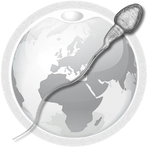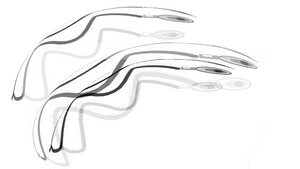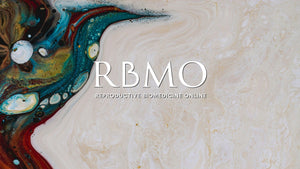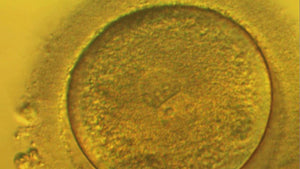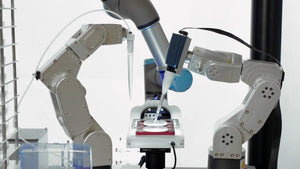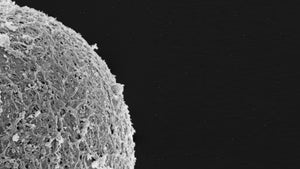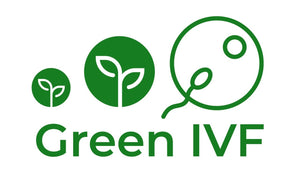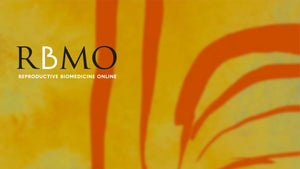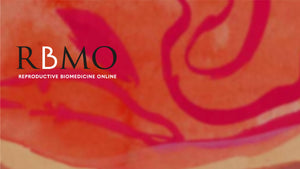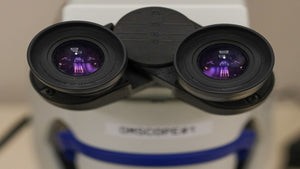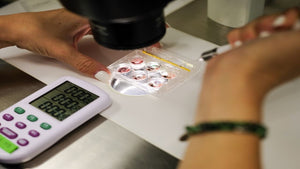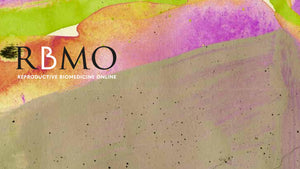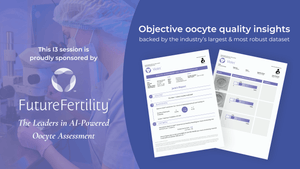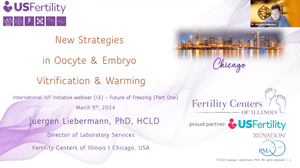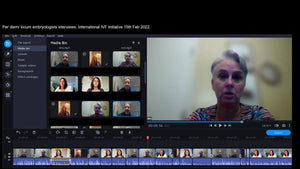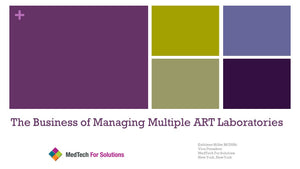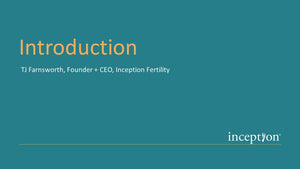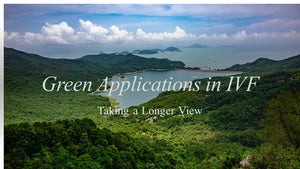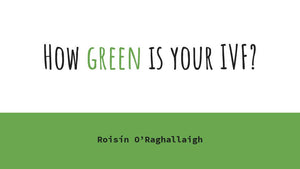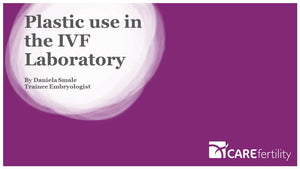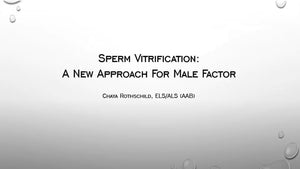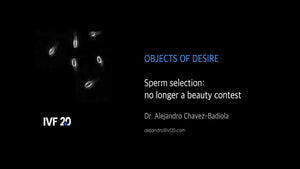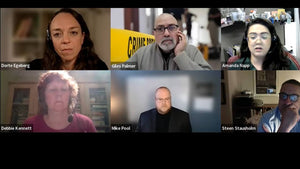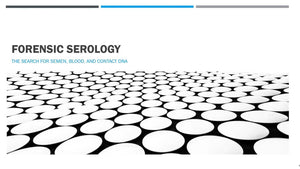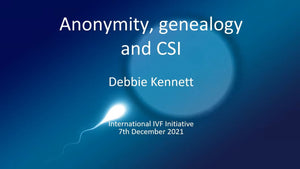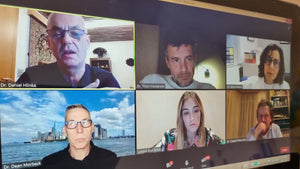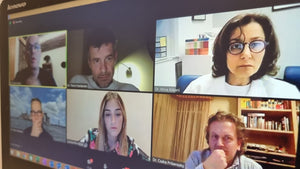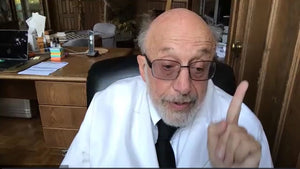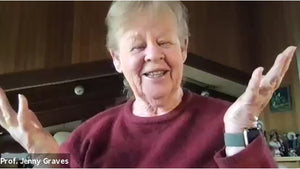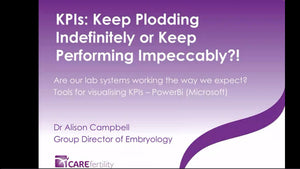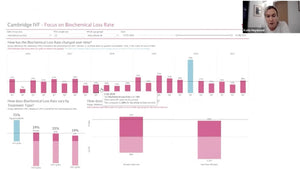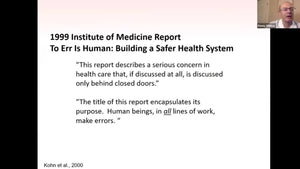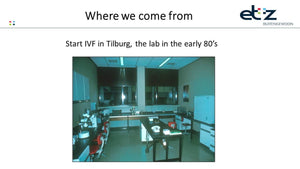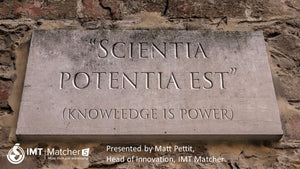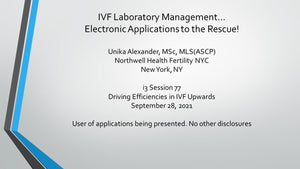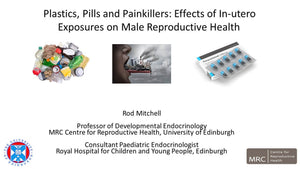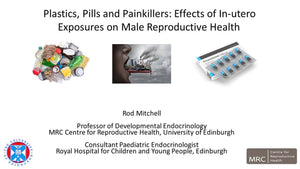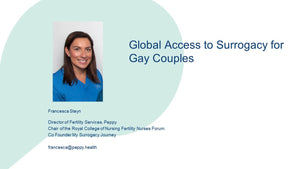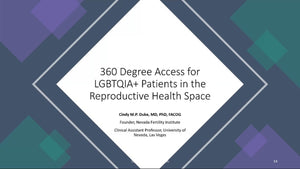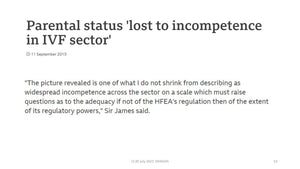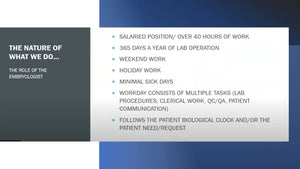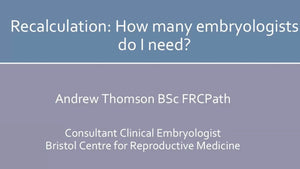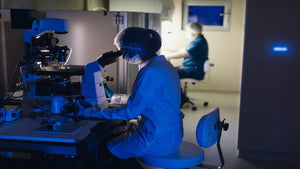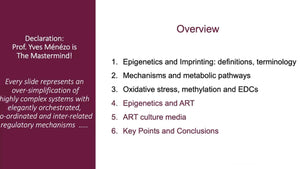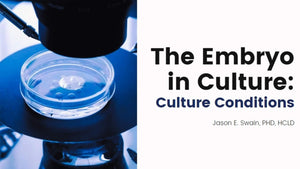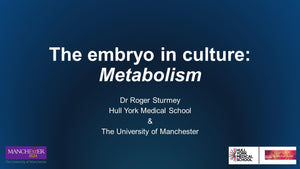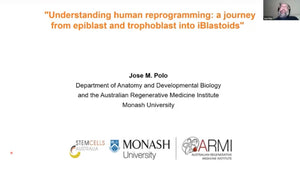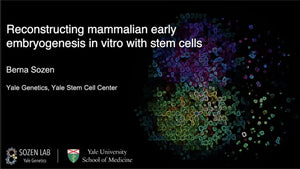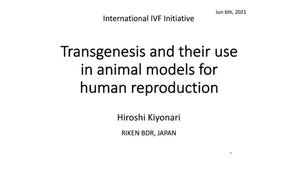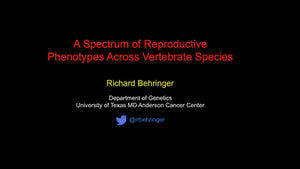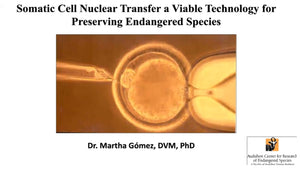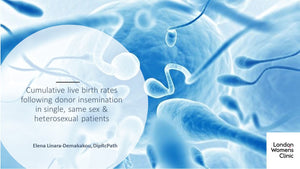Session 91: "I Think I Read It Somewhere.."

Donate
At the International IVF Initiative, we are committed to providing free access to our educational sessions, webinars, and resources for professionals and individuals passionate about advancing reproductive medicine. We believe that cost should never be a barrier to knowledge and collaboration. By contributing, you’re ensuring that valuable educational resources, expert insights, and collaborative opportunities remain open to all without financial barriers. Together, we can continue to foster a global community dedicated to innovation and excellence in the field of IVF.
Your Donation
Thank you!
Session 91: I Think I Read It Somewhere..
Tuesday, 22nd March, 2022. 3pm EST/ 7pm UK/ 8pm CET
Moderators:
Dr. Peter Nagy and Dr. Kathryn Go
Talks and discussions on the backstory of influential scientific papers and hidden gems in scientific journals that defined how we work today.
Dr. Jacques Cohen
Dr. Santiago Munne
Prof. David Gardner ( Video)
Prof. Gianpiero D. Palermo
Dr. Kimball Pomeroy
Duncan Nicholas
This session is kindly sponsored by ZyMōt Fertility
For further information on the sponsor please visit ZyMōt Fertility and their new microsite here.
DR JACQUES COHEN
 Dr. Jacques Cohen is a reproductive biologist, laboratory product developer and high complexity laboratory director (HCLD). He is director and founder of the ART Institute of Washington, which runs the joint National Institute of Health and Walter Reed National Military Medical Center IVF program in Bethesda Maryland (USA). He is product developer and co-founder of IVFqc/Althea Science, which develops software solutions for laboratories and clinics. He was co-founder of Reprogenetics, a PGD service, now continuing as Cooper Genomics. He was a co-founder and product developer of Life-Global/IVF-Online. He has (co-)authored more than 300 publications, several textbooks and 12 patents. He is Emeritus Chief Editor of Reproductive Biomedicine Online.
Dr. Jacques Cohen is a reproductive biologist, laboratory product developer and high complexity laboratory director (HCLD). He is director and founder of the ART Institute of Washington, which runs the joint National Institute of Health and Walter Reed National Military Medical Center IVF program in Bethesda Maryland (USA). He is product developer and co-founder of IVFqc/Althea Science, which develops software solutions for laboratories and clinics. He was co-founder of Reprogenetics, a PGD service, now continuing as Cooper Genomics. He was a co-founder and product developer of Life-Global/IVF-Online. He has (co-)authored more than 300 publications, several textbooks and 12 patents. He is Emeritus Chief Editor of Reproductive Biomedicine Online.He was one of the founders of Alpha – Scientists in Reproductive Medicine and one of the founders of Preimplantation Genetic Diagnosis International Society - PGDIS. He is a founding member of the International IVF Initiative.
Jacques Cohen was born in The Hague, The Netherlands and graduated in Biology of Reproductive Science in 1978 at Leiden University, Leiden, The Netherlands. He has a Ph.D. from Erasmus University in Rotterdam (supervisor Prof. Gerard Zeilmaker), in aspects of in vitro fertilization and male factor infertility. His postdoctoral studies (1982-1985) were performed at Cambridge University (UK) and Bourn Hall Clinic (supervisor Prof Robert Edwards). Jacques Cohen has (co-)developed a number of embryological methodologies and devices: blastocyst cryopreservation, assisted fertilization, assisted hatching, preimplantation genetic testing, ooplasmic donation, single sperm freezing, CODA filtration, Global media, and GPS dishes. He currently serves on Advisory Boards of biotech startups TMRW, Kindbody, DADI and Phosphorus.
DR. SANTIAGO MUNNE

In 1993 he developed the first Preimplantation Genetic Test for Aneuploidy (PGT-A). As PGT director of IRMS-Saint Barnabas he developed PGT for translocations (1996, SART prize), and demonstrated that PGT-A reduces miscarriages and increases implantation rates (1998 SART prize). He is adjunct professor at Yale University Ob/Gyn Dept., published >260 scientific publications, received SART and ASRM prize papers, and the ASRM Star Award consecutively for 2011-2020.
In 2001 founded Reprogenetics with Jacques Cohen and David Sable, and as its CEO Reprogenetics became the first commercial US PGT laboratory, performing over 100K procedures
In 2017 he joined Martin Varsavsky and Joson Horcajadas to co-found Overture Life, a company focused on automating the IVF Laboratory. He serves in several BOAs and BODs of private companies.
PROF DAVID GARDNER

David is the Scientific Director of Melbourne IVF and a Distinguished Professor in the School of BioSciences, University of Melbourne.
David completed his PhD (1987) at the University of York, with Henry Leese. In 1988 he moved to Harvard Medical School to work with John Biggers, after which he moved to Monash, Australia, in 1989 to work with Alan Trounson. In 1997 became the Scientific Director of the Colorado Centre for Reproductive Medicine in Denver, where his work on human embryo culture conditions revolutionised how human IVF is performed today with the introduction of blastocyst transfer.
In 2007 he was appointed Professor and Chair of Department at the University of Melbourne and promoted to the level of Distinguished Professor in 2018.
In 2017 he became the Scientific Director of Melbourne IVF. He has published over 300 papers and chapters and has edited 15 books, culminating in over 30,000 citations and an H index of 99.
In 2017 in recognition of his many significant contributions to reproductive sciences he was elected as a Fellow into the Australian Academy of Science (FAA) and further was the recipient of the Distinguished Researcher Award from the American Society of Reproductive Medicine.
PROF GIANPIERO PALERMO
 Dr. Gianpiero D. Palermo is a Professor of Embryology in Obstetrics and Gynecology and the Blavatnik Family Professor of Reproductive Medicine at The Ronald O. Perelman and Claudia Cohen Center for Reproductive Medicine of Weill Cornell Medicine. He received his medical degree from the University of Bari in Italy, and received his Ph.D. in Reproduction and Development from Monash University in Australia. He completed his residency in Obstetrics and Gynecology and his REI Fellowship at New York-Presbyterian/Weill Cornell Medicine. He is board-certified in Obstetrics and Gynecology and in Reproductive Endocrinology and Infertility. He is a member of ASRM as well as ESHRE, and has been the Director of Assisted Fertilization and Andrology at The Ronald O. Perelman and Claudia Cohen Center for Reproductive Medicine since 1993. Dr. Palermo was the first to describe ICSI in 1992. Since then, it has become the most utilized assisted reproductive technology in the world.
Dr. Gianpiero D. Palermo is a Professor of Embryology in Obstetrics and Gynecology and the Blavatnik Family Professor of Reproductive Medicine at The Ronald O. Perelman and Claudia Cohen Center for Reproductive Medicine of Weill Cornell Medicine. He received his medical degree from the University of Bari in Italy, and received his Ph.D. in Reproduction and Development from Monash University in Australia. He completed his residency in Obstetrics and Gynecology and his REI Fellowship at New York-Presbyterian/Weill Cornell Medicine. He is board-certified in Obstetrics and Gynecology and in Reproductive Endocrinology and Infertility. He is a member of ASRM as well as ESHRE, and has been the Director of Assisted Fertilization and Andrology at The Ronald O. Perelman and Claudia Cohen Center for Reproductive Medicine since 1993. Dr. Palermo was the first to describe ICSI in 1992. Since then, it has become the most utilized assisted reproductive technology in the world.DR KIMBALL POMEROY
 Dr. Pomeroy is the scientific director for The World Egg Bank.
Dr. Pomeroy is the scientific director for The World Egg Bank.as well as an off-site laboratory director for two IVF laboratories. He has lectured at many scientific meetings and post-graduate courses and has coauthored papers dealing with risks of cross-contamination of microbes during storage of tissue in liquid nitrogen, the usefulness of embryo morphology in predicting pregnancy and the source of microbial contamination during embryo culture.
Kimball O. Pomeroy received a Ph.D. in Animal Physiology at Colorado State University, and then was a post-doc at the Salk Institute for Biological Studies. At the Salk Institute, Dr. Pomeroy worked with Dr. Glen Evans on the Human Genome Project (chromosome 11) and did work in the production of transgenic animals.
He was trained in Bristol, England as a human embryologist and worked as a consultant for several projects in Mexico, Nepal, China, Bolivia, and the Bahamas. He has served as a member of the SART Executive Board, Chair of the Reproductive Laboratory Technician’s Group, Chair of the College of Reproductive Biology, and a founding member of both the Regulatory Task Force and the Southwest Embryologist Summit.
Recently, he has focused his studies on what happens when cryotanks fail and is studying how oocytes regulate their pH.
DR KATHRYN GO
 Dr. Go earned her doctoral degree in molecular biology from the University of Pennsylvania and has been a laboratory director and practicing embryologist for 38 years. Dr. Go is the Director of the IVF Laboratory at the Brigham and Women’s Hospital, and was a consultant to and a managing director at TMRW Life Sciences. She was the Scientific and Laboratory Director at the Reproductive Sciences Center of New England, as well as laboratory director at Boston IVF – the Maine Center, Reprosource Fertility Diagnostics, and Pennsylvania Reproductive Associates. Dr. Go was on the faculties of the medical schools of the University of Pennsylvania, Thomas Jefferson Medical University, and the University of Massachusetts, and has also taught at the Medical College of Pennsylvania and the Experimental College of Tufts University. She has served on the executive council of the Society for Assisted Reproductive Technology and was chair of the Reproductive Biology Professional group of the American Society for Reproductive Medicine. She is also past President of the New England Fertility Society (NEFS) and currently serves as 2022 annual program Scientific Chair.
Dr. Go earned her doctoral degree in molecular biology from the University of Pennsylvania and has been a laboratory director and practicing embryologist for 38 years. Dr. Go is the Director of the IVF Laboratory at the Brigham and Women’s Hospital, and was a consultant to and a managing director at TMRW Life Sciences. She was the Scientific and Laboratory Director at the Reproductive Sciences Center of New England, as well as laboratory director at Boston IVF – the Maine Center, Reprosource Fertility Diagnostics, and Pennsylvania Reproductive Associates. Dr. Go was on the faculties of the medical schools of the University of Pennsylvania, Thomas Jefferson Medical University, and the University of Massachusetts, and has also taught at the Medical College of Pennsylvania and the Experimental College of Tufts University. She has served on the executive council of the Society for Assisted Reproductive Technology and was chair of the Reproductive Biology Professional group of the American Society for Reproductive Medicine. She is also past President of the New England Fertility Society (NEFS) and currently serves as 2022 annual program Scientific Chair.DR PETER NAGY
 Dr. Nagy is the Scientific and Laboratory Director at Reproductive Biology Associates (RBA), in Atlanta, USA (since 2002). He obtained his MD (1986) and his Ob&Gyn specialty degrees (1996) at the Semmelweis Medical University in Budapest. He obtained his PhD at the Free University of Brussels (VUB) in 1997 on development of ICSI procedure. Dr. Nagy has acquired a distinctive knowledge and experience on embryo science, including novel viability assessment methods. He has also investigated the basic and clinical aspects of cryopreservation and, developed with his team a highly efficient, proprietary protocol in 2006 for oocyte vitrification that has contributed to the development of “My Egg Bank”, the first vitrification based and of the largest donor oocyte cryo-bank in North- America.
Dr. Nagy is the Scientific and Laboratory Director at Reproductive Biology Associates (RBA), in Atlanta, USA (since 2002). He obtained his MD (1986) and his Ob&Gyn specialty degrees (1996) at the Semmelweis Medical University in Budapest. He obtained his PhD at the Free University of Brussels (VUB) in 1997 on development of ICSI procedure. Dr. Nagy has acquired a distinctive knowledge and experience on embryo science, including novel viability assessment methods. He has also investigated the basic and clinical aspects of cryopreservation and, developed with his team a highly efficient, proprietary protocol in 2006 for oocyte vitrification that has contributed to the development of “My Egg Bank”, the first vitrification based and of the largest donor oocyte cryo-bank in North- America.Dr. Nagy is member of several national and international professional societies, including ASRM, ESHRE, Alpha. He is also board member of the International Society for Fertility Preservation (ISFP) and of the Alliance for Fertility Preservation (AFP) and past Chair of Alpha Scientist in Reproductive Medicine (ALPHA). Dr. Nagy is a reviewer of several medical journals, and currently he is section editor of RBMonline, past Section Editor of Human Reproduction. He has been an invited speaker in several hundreds of meeting/congresses in over 50 countries across the world. Dr. Nagy is author or co-author of over 200 publications, including several dozens of book chapters and five books.
Duncan Nicholas
 Duncan is the Director of DN Journal Publishing Services, providing independent editorial consultancy and training courses to journals, publishers, researchers around the world. He has over 16 years’ experience in the journal publishing industry, and is currently President for the European Association of Science Editors (EASE).
Duncan is the Director of DN Journal Publishing Services, providing independent editorial consultancy and training courses to journals, publishers, researchers around the world. He has over 16 years’ experience in the journal publishing industry, and is currently President for the European Association of Science Editors (EASE). His regular clients include Reproductive Biomedicine Online for whom he provides strategic development support, copywriting of guidelines and statements for Committee on Publication Ethics, and he also delivers the Advanced Journal Development course for Association of Learned Publishing and Society Professionals (ALPSP).
His consultancy support the strategic development of journals drawing from his experience and interest in progressive techniques that support a range of editorial processes, including developing quality content, enhancing presence and impact, open science initiatives and publishing models, editorial board development, managing society relationships with publishers and more.
His training workshops are designed for editorial staff and researchers of all levels of academic seniority on a wide range of topics, such as journal management techniques, editorial office management, writing and journal publishing skills, peer review, journal impact and metrics, open science, social media & promotion, publishing & research ethics, and copyright & licensing. Duncan has been involved in the development, creation of content and recording of online learning materials, including the IFIS Expert Guide to Journal Publishing, and a central role in producing the Publons Academy.
In 2017 and 2018 he chaired the Conference Organising Committee for the International Society for Managing and Technical Editors (ISMTE), and is currently an active member of the Peer Review Week organising committee.
